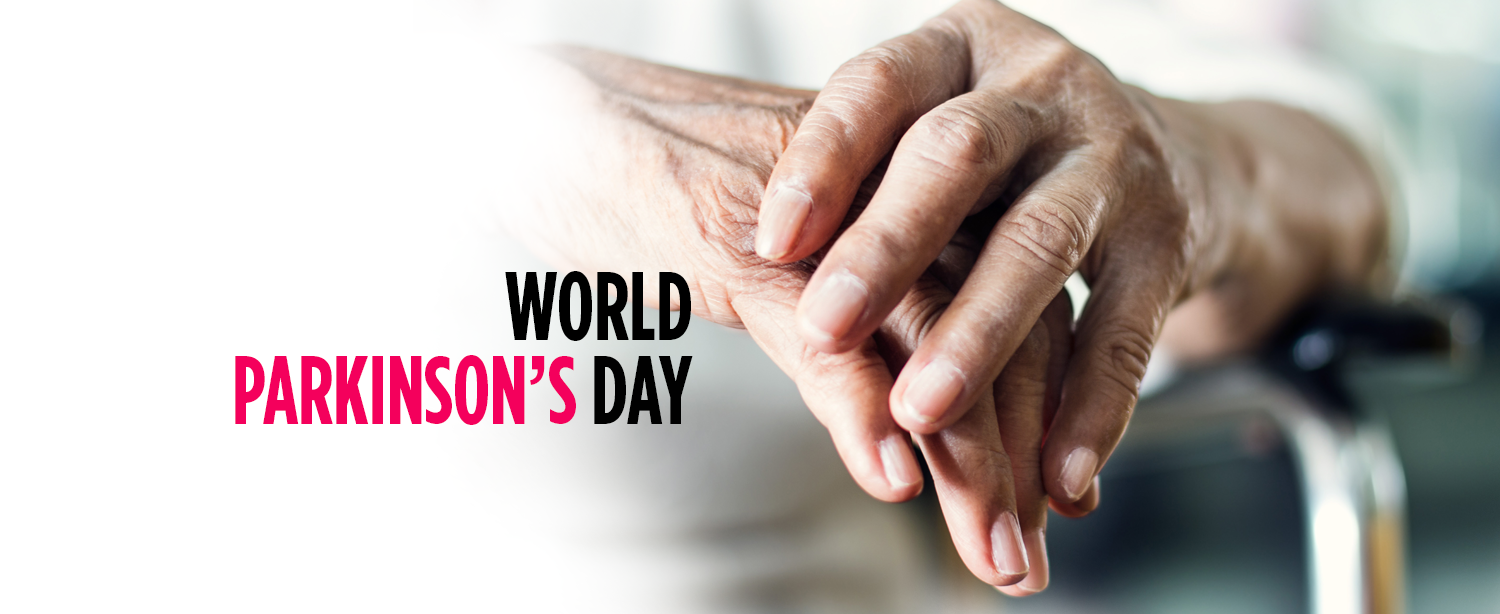Parkinson’s is a degenerative neurological condition. Parkinson’s disease affects the nerve cells in the brain that produce dopamine and leads to low production of dopamine. Low levels of dopamine slow down your movements. Parkinson’s affects the nervous system, and the symptoms become worse over time. The symptoms of Parkinson’s disease develop gradually. They often start with a slight tremor in one hand and a feeling of stiffness in the body.
Symptoms
Here are a few early symptoms of Parkinson’s:
- Movement: There may be a tremor in the hands.
- Coordination: A reduced sense of coordination and balance can cause people to drop items they are holding. They may be more likely to fall.
- Gait: The person’s posture may change, so that they lean forward slightly as if they were hurrying. They may also develop a shuffling gait.
- Facial expression: This can become fixed, due to changes in the nerves that control facial muscles.
- Voice: There may be a tremor in the voice, or the person may speak more softly than before.
- Handwriting: This may become more cramped and smaller.
- A sense of smell: A loss of sense of smell can be an early sign.
- Sleep problems: Patients have complains of irregular sleep.
Detect Parkinson’s early
Many people think that the early signs of Parkinson’s are normal signs of ageing. For this reason, they may not seek help. However, treatment is more likely to be effective if a person starts it early. For this reason, it is important to get an early diagnosis if possible.
Risk factors of Parkinson’s
People do not know exactly what causes Parkinson’s disease, but there is evidence that certain factors may make it more likely to occur. Here are a few factors:
-
- Age and sex
Symptoms of Parkinson’s become noticeable at the age of 60 years or over. However, in 5–10 per cent of cases they appear earlier. When it develops before the age of 50 years, this is called “early-onset” Parkinson’s Disease. Men appear to have a 50-per cent higher chance of developing PD than women.
-
- Family history and genetics
Around 10 to 15 per cent of cases is probably due to hereditary genetic factors. The others are “sporadic.” There is currently no way to predict that they will occur. The presence of certain genes like GBA increases the risk of developing Parkinson’s Disease.
Prevent Parkinson’s Disease
Lead a healthy lifestyle and stay fit. Here are a few tips to prevent Parkinson’s:
1. Eat fresh and organic – Pesticides and herbicides have been heavily implicated in causing Parkinson’s. Choose to buy your fruits and vegetables from a farmers market or a local vendor, choose to eat organic.
2. Eat raw vegetables – Studies show that increased amounts of folic acid, found primarily in vegetables, can significantly reduce the risk of Parkinson’s. The best sources of folic acid are available in dark green vegetables like broccoli, spinach, brussels sprouts, asparagus, avocado and okra.
3. Include omega 3 fatty acids – Parkinson’s is inflammatory in nature, hence a diet high in omega-3 fatty acids helps prevent the disease. Omega-3 fatty acids are strongly implicated in the prevention of cell degeneration and death.
4. Vitamin D3 – It is available in the below two sources:
- Sunlight – With the help of cholesterol and vitamins, vitamin D is changed chemically and absorbed into the bloodstream.
- Animal Fat – Eating animal fat from healthy animals that are wild or grass-fed is a premier source of vitamin D.
Research suggests that 70 per cent of early, untreated Parkinson’s patients have low levels of vitamin D – identifying this statistic as a strong correlation would be an understatement.
5. Green Tea – The inherent antioxidant properties of green tea are well known. Multiple studies have shown that certain compounds in green tea have myriad protective benefits on the neural network of the brain. Green tea has also been shown to sustain dopamine levels in ailing brain tissue, reducing the severity of Parkinson’s symptoms for those already diagnosed.
6. Regular exercise – In addition to physical benefits like increasing lung capacity, bone density and overall longevity, exercise has a distinct impact on brain health. Regular aerobic exercise reduces inflammation in the brain, helping to counter the inflammatory signals leading to the development of Parkinson’s.
7. Reduce stress – The most important thing we can do for our long-term health, both physical and cognitive, is to reduce the stress in our bodies. All stress – physical, emotional and chemical – causes inflammation and long-term damage throughout the body.
Are you suffering from Parkinson’s disease? Whether it is sleep, travel, dental issues, home safety or living safely with Parkinson’s consult our Neurosciences team who can guide you with the best advice. Please find below link for more details:


